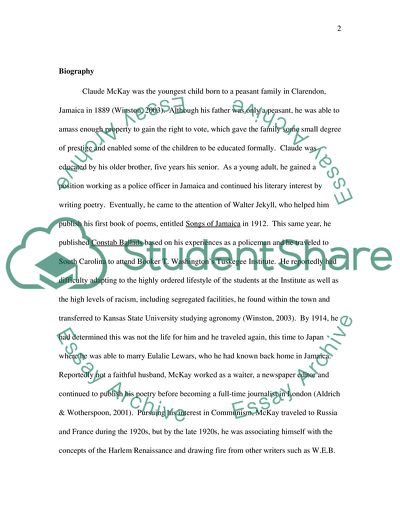Cite this document
(The Major Themes of Mckays Poetry Coursework Example | Topics and Well Written Essays - 1750 words, n.d.)
The Major Themes of Mckays Poetry Coursework Example | Topics and Well Written Essays - 1750 words. https://studentshare.org/literature/1719036-claude-mckay-poet
The Major Themes of Mckays Poetry Coursework Example | Topics and Well Written Essays - 1750 words. https://studentshare.org/literature/1719036-claude-mckay-poet
(The Major Themes of Mckays Poetry Coursework Example | Topics and Well Written Essays - 1750 Words)
The Major Themes of Mckays Poetry Coursework Example | Topics and Well Written Essays - 1750 Words. https://studentshare.org/literature/1719036-claude-mckay-poet.
The Major Themes of Mckays Poetry Coursework Example | Topics and Well Written Essays - 1750 Words. https://studentshare.org/literature/1719036-claude-mckay-poet.
“The Major Themes of Mckays Poetry Coursework Example | Topics and Well Written Essays - 1750 Words”. https://studentshare.org/literature/1719036-claude-mckay-poet.


